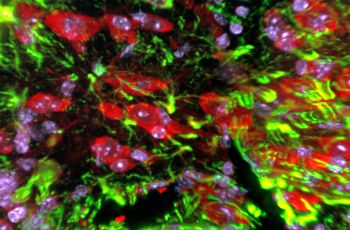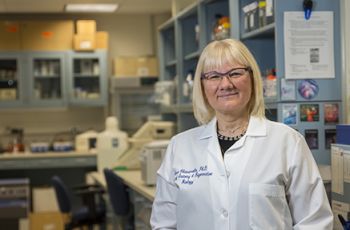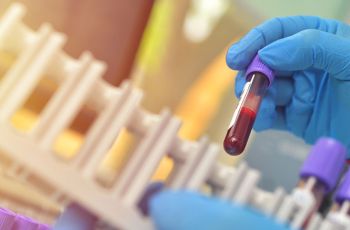Research News
Researchers at the George Washington University School of Medicine and Health Sciences, led by Robert Miller, PhD, the Vivian Gill Distinguished Research Professor and vice dean of the GW SMHS, discovered that a protein called Snail plays a key role in coordinating the response of brain cells after…
Anne Chiaramello, PhD, founding director the Mito-EpiGen Program at the George Washington University (GW) School of Medicine and Health Sciences (SMHS) received FDA approval for the first basket clinical trial in the US for two ultra-rare inherited mitochondrial diseases, MELAS and LHON-Plus.
Pfizer has launched a Phase 3 study of its RSV vaccine candidate and researchers at the George Washington University are studying the vaccine’s safety and ability to trigger an immune response in two groups of people at risk for severe illness caused by respiratory syncytial virus or RSV.
The George Washington University (GW) School of Medicine and Health Sciences (SMHS) announced the selection of Hematology and Oncology Fellow Fayez Estephan, MD, as the 2022 recipient of the Albert L. and Elizabeth T. Tucker Postdoctoral Fellowship for his research project titled, “Her-2…
Vsevolod “Seva” Polotsky, MD, has been selected to serve as vice chair for research in the Department of Anesthesiology and Critical Care Medicine at the George Washington University (GW) School of Medicine and Health Sciences and the GW Medical Faculty Associates. Polotsky will also serve as…
The George Washington University’s Institute for Biomedical Sciences (IBS) recently recognized and celebrated its Class of 2022 PhD graduates.
The George Washington University Vaccine Research Unit in partnership with Scripps Research, IAVI, Fred Hutchinson Cancer Center (FHCC) and the National Institutes of Health, National Institute of Allergy and Infectious Diseases Vaccine Research Center published the results of their Phase 1…
Though antiretroviral therapy has made HIV a manageable disease, people living with HIV often suffer from chronic inflammation. This can put them at an increased risk of developing comorbidities such as cardiovascular disease and neurocognitive dysfunction, impacting the longevity and quality of…
The Department of Dermatology at the George Washington University School of Medicine and Health Sciences received two awards from dermatology company Galderma to establish a research fund and a medical student research fellowship.
A research team led by Jonathan Silverberg, MD, PhD, MPH, professor of dermatology at the George Washington University School of Medicine and Health Sciences, has identified which acute symptom clusters may lead to long-term, chronic infection and which individuals are most likely to develop Long…




